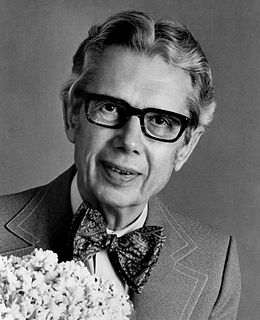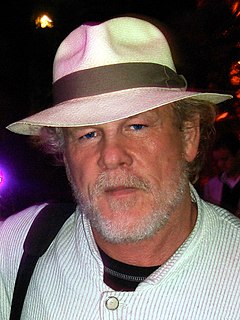A Quote by Michael Pollan
But carbon 13 [the carbon from corn] doesn't lie, and researchers who have compared the isotopes in the flesh or hair of Americans to those in the same tissues of Mexicans report that it is now we in the North who are the true people of corn.... Compared to us, Mexicans today consume a far more varied carbon diet: the animals they eat still eat grass (until recently, Mexicans regarded feeding corn to livestock as a sacrilege); much of their protein comes from legumes; and they still sweeten their beverages with cane sugar. So that's us: processed corn, walking.
Quote Topics
Related Quotes
The fundamental reason why carbon dioxide in the atmosphere is critically important to biology is that there is so little of it. A field of corn growing in full sunlight in the middle of the day uses up all the carbon dioxide within a meter of the ground in about five minutes. If the air were not constantly stirred by convection currents and winds, the corn would stop growing.
Animals raised on corn produce fattier meat, but it's not just that it's fattier, it's the kinds of fats. Corn-fed beef produces lots of saturated fats. So that the heart disease we associate with eating meat is really a problem with corn-fed meat. If you eat grass-fed beef, it has much more of the nutritional profile of the wild meat.
We're going to move from a commodity economy where you basically grow the same kind of crops - where a kernel of corn is a kernel of corn is a kernel of corn - to an ingredient economy where there will be a kernel of corn that will be designed for fuel, there will be a kernel of corn designed for livestock.
You know they call corn-on-the-cob, "corn-on-the-cob", but that's how it comes out of the ground. They should just call it corn, and every other type of corn, corn-off-the-cob. It's not like if someone cut off my arm they would call it "Mitch", but then re-attached it, and call it "Mitch-all-together".
The government will pay certain farmers to not grow corn. Wow. Where's my check? That'd be great. "Hey, what do you do for a living?" "Well, I don't grow corn. Get up at the crack of noon, make sure there's no corn growing. I'm gonna get up early tomorrow. And not plow. You know, we used to not grow tomatoes-but there's more money in not growing corn."
Every New Englander might easily raise all his own breadstuffs in this land of rye and Indian corn, and not depend on distant andfluctuating markets for them. Yet so far are we from simplicity and independence that, in Concord, fresh and sweet meal is rarely sold in the shops, and hominy and corn in a still coarser form are hardly used by any.































